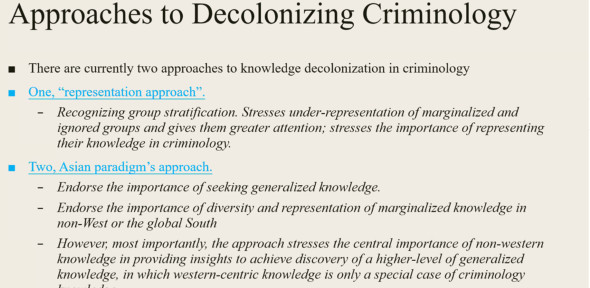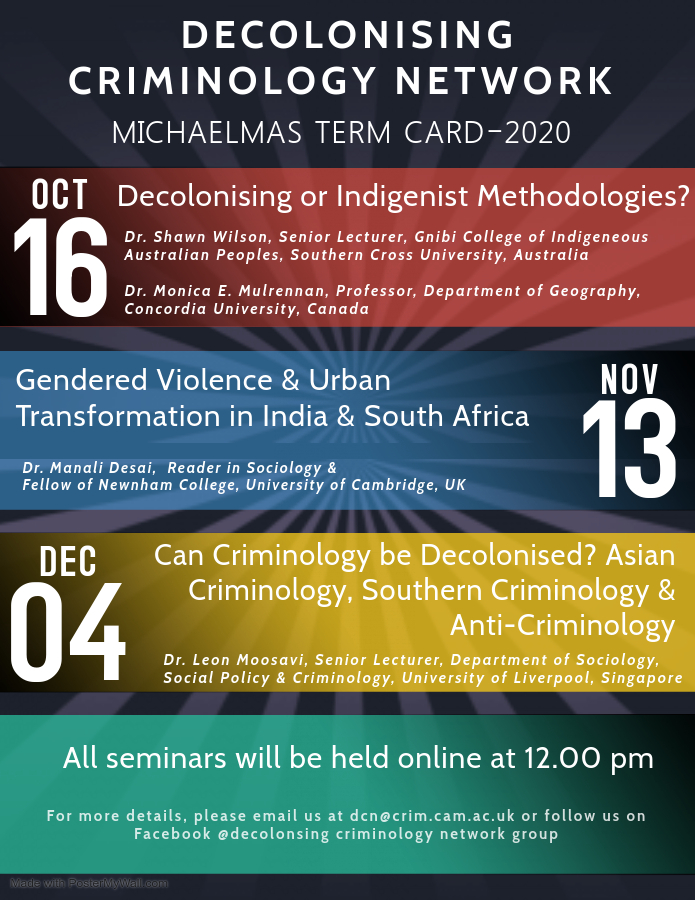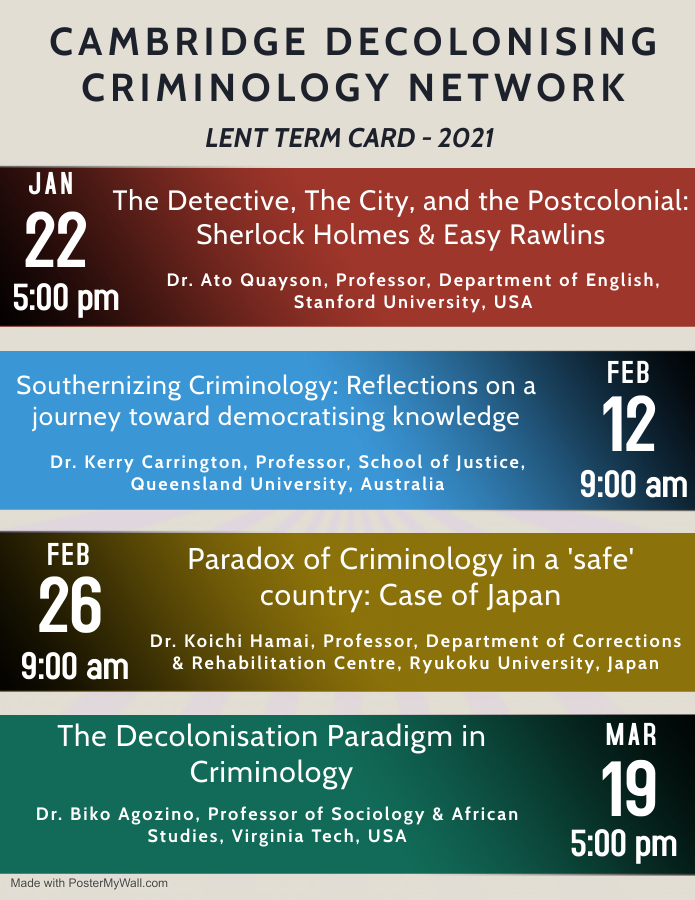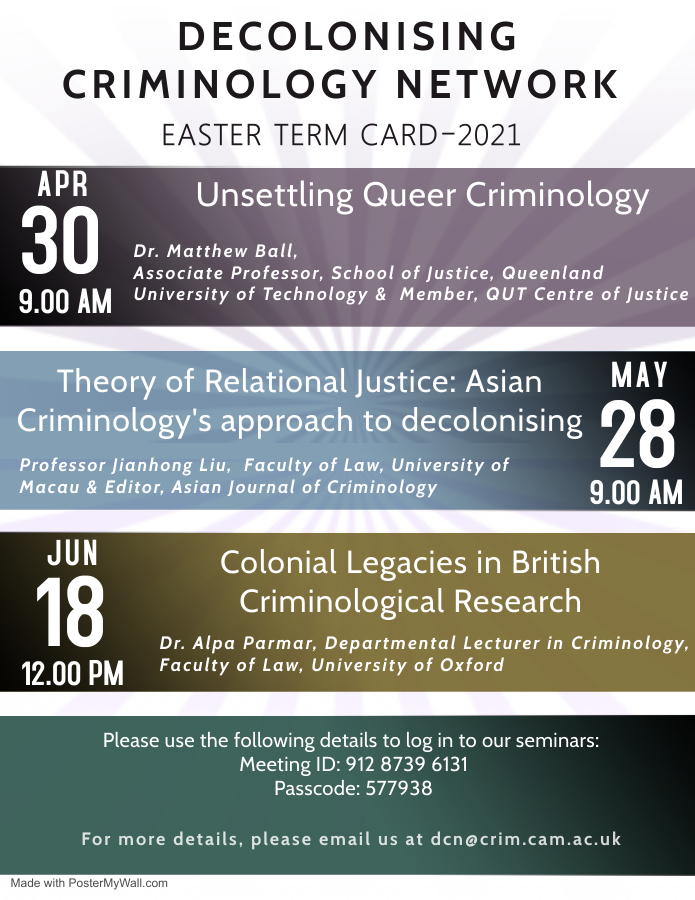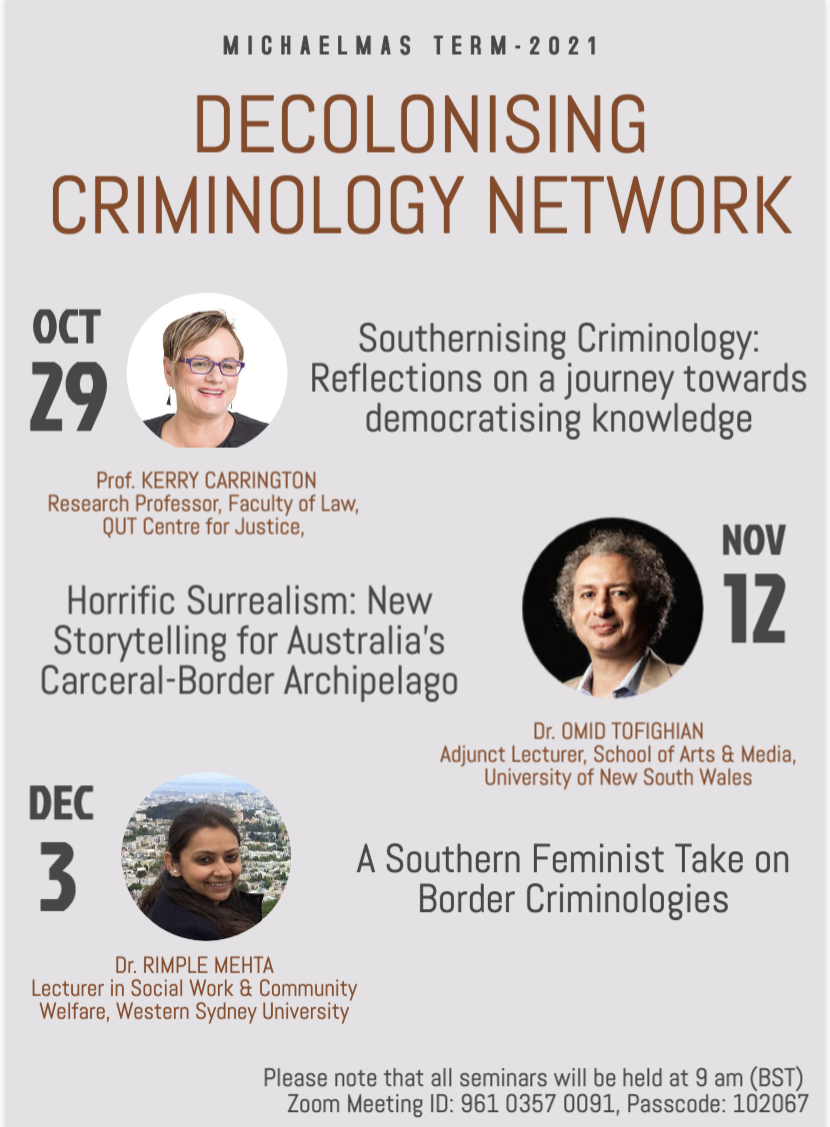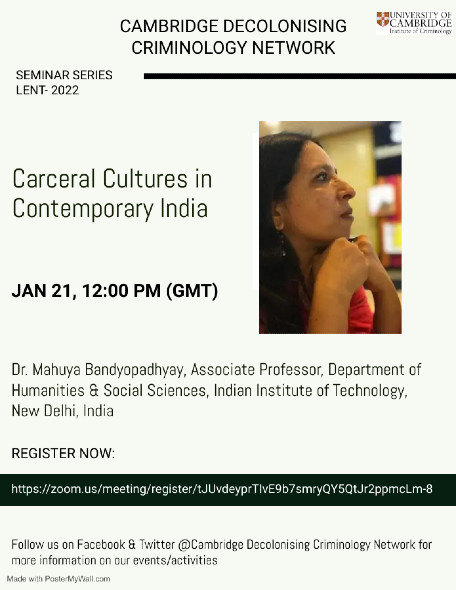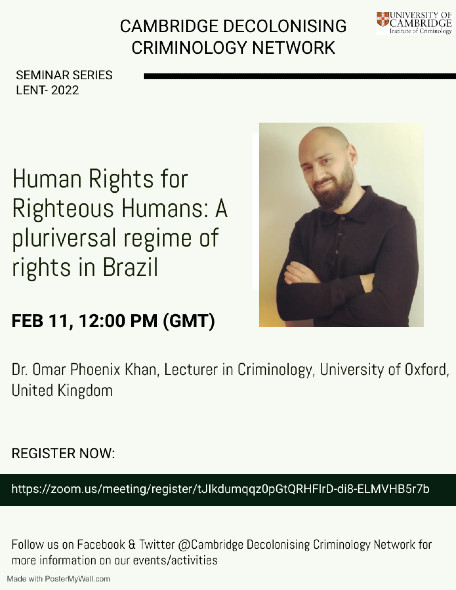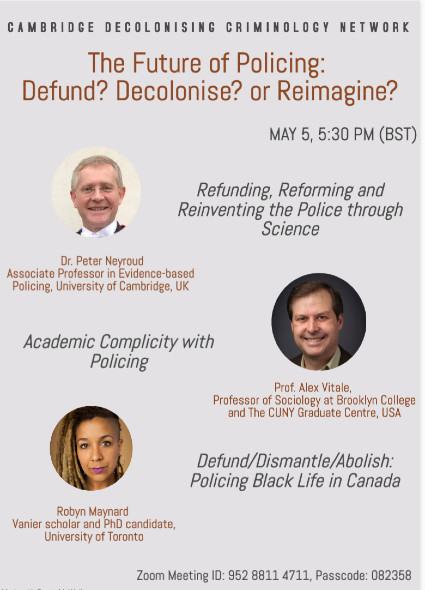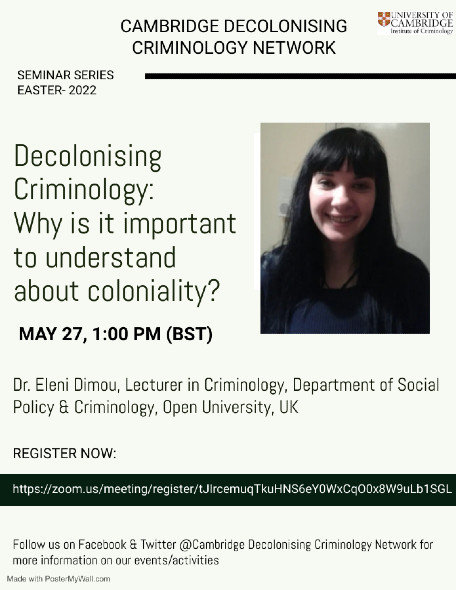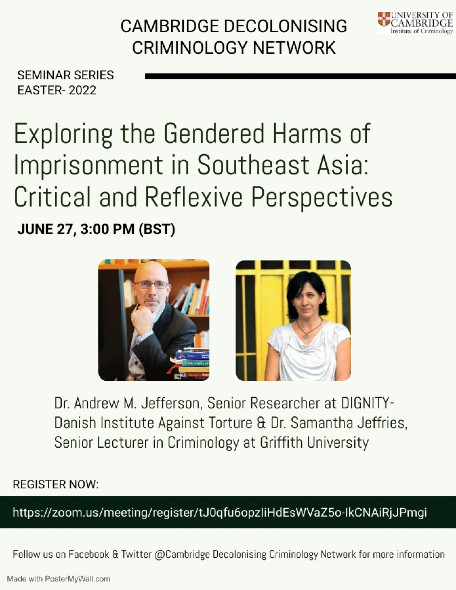The Cambridge Decolonising Criminology Network (CDCN) is an intellectual initiative founded by PhD students at the Institute of Criminology, dedicated to acknowledging, addressing, and dismantling the colonial legacies that continue to shape contemporary criminological thought. The network seeks to unite students, researchers, and eminent scholars in criminology and related fields to explore subjects often neglected in mainstream criminology but are of critical importance in the Global South. By centering on colonialism and its lasting impacts on crime, punishment, and justice, CDCN strives to foster a more inclusive, culturally responsive, and globally relevant criminology. Through rigorous dialogue, collaboration, and interdisciplinary engagement, the network aims to challenge traditional power structures and amplify voices historically excluded from the discipline.
If you are passionate about engaging with these critical issues and rethinking criminology through a decolonial lens, please join the network by emailing us at dcn@crim.cam.ac.uk. We invite you to be part of a collective effort to push the boundaries of the discipline and create space for more diverse, inclusive perspectives. Further details can be found at https://www.crim.cam.ac.uk/CDCN.
How to Contact the CDCN
| Decolonising Criminology Network Group @decolonisingcriminology | |
| @CambridgeDCN | |
| dcn@crim.cam.ac.uk |
Photo credit: Professor Jianhong Liu (Faculty of Law, University of Macau & Editor, Asian Journal of Criminology)
| Mentors | |
| Members |
Other members are appointed on an annual basis.
In May 2022, Kanupriya Sharma, the founding member of the network was nominated and awarded with the Vice Chancellors Social Impact Award by Cambridge Hub, for exceptional achievement and commitment to positive social change in academia. You can read Kanupriya's blog about her award here.
The CDCN Seminar Series runs throughout the academic year, hosting a diverse, and interdisciplinary range of speakers including imminent academicians, early career researchers and criminal justice practitioners from the UK and around the world.
The seminar usually lasts for an hour followed by questions and a discussion. To encourage global participation, the seminars are usually held virtually or in a hybrid format and are open to all.
If you are interested in speaking at the series or have a recommendation for a speaker, please get in touch!
Please find below a list of our previous seminars:
The Decolonising Criminology Reading Group meets once each term, and is open to all who have an interest in decolonisation matters related to research, writing, and academic practice. We are committed to creating a safe space for candid reflection and respectful discussion.
Find CDCN on Facebook and Twitter for more details on reading group details. There is no need to confirm attendance, but please do get in touch if you would like to be added to our network e-mail list:dcn@crim.cam.ac.uk
The CDCN Reading Group has previously read:
- Ajil, A., & Blount-Hill, K.-L. (2020). 'Writing the Other as Other”: Exploring the Othered Lens in Academia Using Collaborative Autoethnography'. Decolonization of Criminology and Justice, 2(1), 83-108.
- (2012) Restorative justice: the indigenous justice system. Contemporary Justice Review, 15(4), 449-467.
- Tuck, E. & Yang, K. Y. (2014b). ‘R-Words: Refusing Research’ . In D. Paris and M. T. Winn (Eds.), Humanizing Research: Decolonizing Qualitative Inquiry with youth and Communities. Thousand Oakes, CA: Sage Publications.
- Gatewood, B. J. & Norris, A. (2019) ‘Silence around Prisoner Protests: Criminology, U.S. Black Women and State-Sanctioned Violence’.
- Tuck, E. & Yang, K. W. (2012) ‘Decolonisation is not a metaphor'. Decolonization:Indigeneity, Education & Society, 1(1), 1-40.
- Valdés-Riesco, A. (2021) ‘Can the Subaltern Speak in Criminology? Analysing the Production of Knowledge on Crimes of the Powerful in the 21st Century through Latin American Postcolonial Lenses.’ International Journal for Crime, Justice and Social Democracy, 10(1).
- Steinmetz, K. F., Schaefer, B. P. & Henderson, H. (2017) ‘Wicked Overseers: American Policing and Colonialism’. Sociology of Race and Ethnicity, 3(1).
- Moore, J. M. (2020) ‘ “Law”, “order”, “justice”, “crime”: Disrupting key concepts in criminology through the study of colonial history’. The Law Teacher, 54(4).
- Lawrence, P. (2012) ‘History, criminology and the “use” of the past’. Theoretical Criminology, 16(3).
Details will be posted here of future events, as well as on the Institute of Criminology's Upcoming Events webpage.

